Costa Rica doesn’t read enough—and we must help parents become part of the solution
Before we even started reporting on reading in Costa Rica, we knew one thing for sure. We know this as journalists, but also as moms: reading begins at home.
A very heavy burden falls on the families of the children of Costa Rica to foster their early development as readers so that elementary and high schools can build on that foundation.
It’s no exaggeration to say that the future of the country depends, in part, on this effort. When we raise citizens who don’t know how to understand what they read, or think critically, or assess whether a piece of news is well-investigated or false and irresponsible—then the oldest continuous democracy in Latin America will survive with great difficulty.
So much depends on parents. It is an unavoidable truth. But that doesn’t mean it’s simple.
During these two months of our “Let’s Read!” edition, we will be talking to teachers, experts, leaders of literacy initiatives, and many parents about reading. We’ll ask them about their successes and failures. So we demand from ourselves that same level of openness and transparency.
That’s why we’re kicking off the edition by looking at our own struggles as parents who are highly educated bookworms, but plenty insecure about how to address this national need in our own homes.
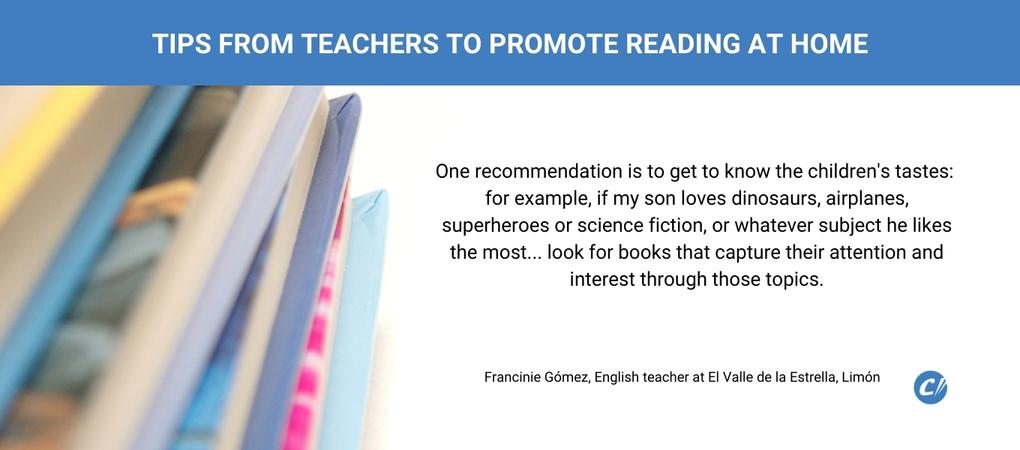
When should kids start reading? A reflection from Monica
When did I learn to read? I don’t remember. But now that I have a child in first grade, I constantly wonder about this.
My son is just beginning to read words here and there. A few days ago, he screamed with emotion when he could read a sign on the street: “‘Seeeeee veeeennnnn deeee.’ It’s for sale, mom! I read for sale!” He did it while I was driving, my son sitting right behind me, and that experience reminded me of my childhood years when I would look out the window of my parents’ car and couldn’t stop reading every sign that crossed our path. The need to decipher the sounds related to those symbols was such that there were parts of the trips where I closed my eyes so I could stop seeing, to force myself not to read anymore, because I was getting tired!
But my son is not the most advanced kid in his class, nor is he as obsessive as I am. His best friend read the whole program at the Cultures Day event in October 2022, when they were in transitional grade (or kindergarten, as we used to call it). Another friend already reads short stories.
Seeing these differences makes me worry. Am I doing something wrong? Should my son, at six years and three months, already be reading? Should he have started at five, like his friend? Will he fail to achieve advanced reading skills and, as the State of Education says, fail to become a “competent citizen, capable of successfully inserting himself into the knowledge society”?
Then I take a step back. I take a breath and remember that my son loves books.
When he was born, my husband and I made wishes: “I hope he loves nature,” said his father. “I hope he loves books,” I said. So far, it seems that both wishes came true.
But there is no guarantee.
It was not until my adolescence that I myself began to read books for pleasure, when I began to read the novels of Isabel Allende, and, later, José Saramago, J.K. Rowling or Gioconda Belli. Then I went through biographies of photojournalists and essays on the ethics of photography. But for more than six years now, I have not finished a book that I’m not required to read. I’ve started some, but with little success.
I’ve now discovered by reading Chapter 3 of the 2021 State of Education report that reading skills today involve much more than being able to read long books or complex essays. Reader must also learn how to decipher information in the widening world of virtual content. That world gets bigger every second, thanks to technology. According to the State of Education, we need “a new way of being a reader, one who builds her own narrative by browsing the web through various formats (web pages, chats, blogs, among others) and is not limited to following a route already defined or established by the authors of a specific text.”
The panorama has become more complex than I thought. I now realize that I not only need my son to love books, but also to understand that information is not only in the books, and that when faced with information, on paper or on a screen, you must be able to create your own criteria to question it and generate your own opinion.
Suddenly, learning to read is much more than associating sounds and symbols. Will we make it in my house?
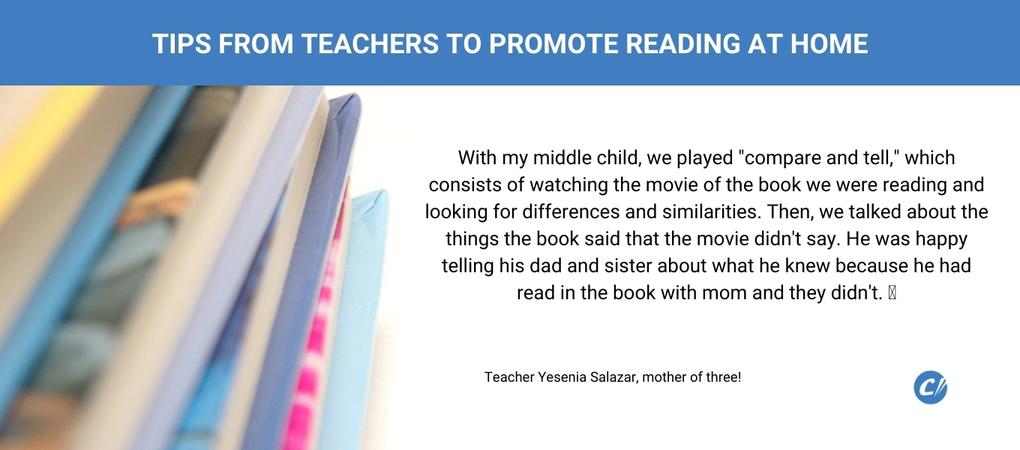
And when you know how to read, what next? A reflection from Katherine
When my daughter was born 10 years ago, one of my great joys was thinking about everything we were going to read together. Of course I, a total bookworm, was going to have a daughter who was just the same. Easy peasy!
I surrounded her with books. I started reading to her from the first day we brought her from the hospital. I knew all too well as a former schoolteacher that not just books, but also the density of language spoken in a home—the number and variety of words to which we expose our babies and toddlers—is essential to their future reading skills. So I drenched her, probably bored her to tears with conversations and monologues, then conversations that over time became more and more two-sided.
And I read to her every night.
Like Monica, I was concerned that it took her a while to start reading, despite being a very verbal person and interested in stories. Today, I tell Monica not to worry so much. During the second grade—the year after, in the new guidelines of the Ministry of Public Education, students in Costa Rica should “know how to read”—my daughter exploded as a reader. According to the reading assessments that I applied as her homeschool teacher that year, she started below second grade reading level and then shot far above it in a matter of months, just like that.
Mission accomplished. Right?
Wrong, because as I learn, creating real readers is still pretty complicated. TV and screens have taught my daughter incredible things, things that I didn’t know at her age—but they complicate the love of reading. Bookstores today, struggling to survive, are full of color, toys, puzzles—and that makes it tougher to steer my daughter towards the books. And then there’s the particularity of every human brain, our divergent tastes. My daughter loves to listen to books, but not to read them; prefers graphic novels to text-only pages; would rather read a book 100 times than read 100 books. She entertains himself for hours making up stories or drawing, her mind wandering through fantasies and inventions, when my nose at his age was always buried in a book.
Of course, that nose of mine isn’t often buried in a book these days, either. I don’t read like I used to. I, too, listen more than I read, because I can consume audiobooks while sorting laundry or walking around. And let’s be honest: I’m also seduced by screens. Many times, at the end of a day of writing and editing, I don’t want to see words on a page. I want to listen to my podcasts and play a pointless game on my phone. I feel guilty and overwhelmed. Not even in reading, something that always defined me, can I be a good role model for her?
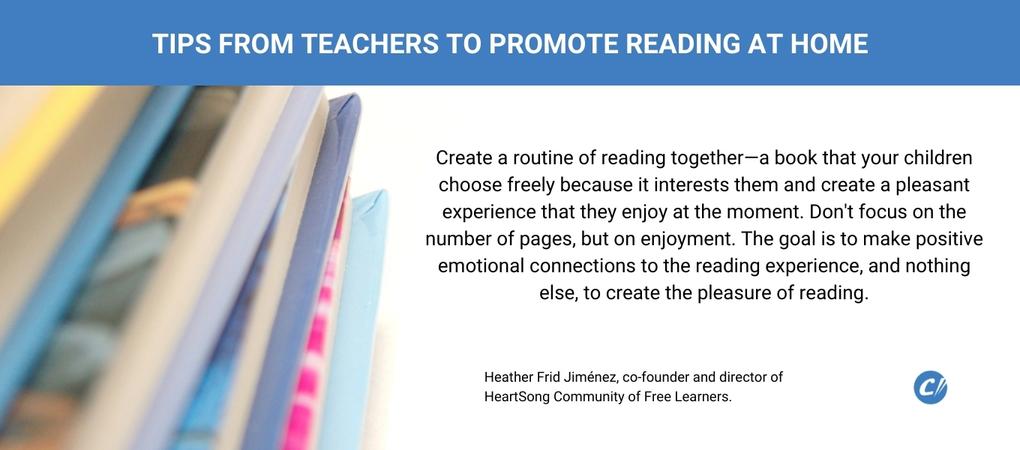
Well, no, and I cannot be complacent about the enormous challenges that Costa Rica faces in this arena. Will my daughter be able to understand the dense texts of high school and (perhaps) university? Will she know how to read with a critical eye the avalanche of information that will assault her every day? Will she pay attention to what is happening around her?
Like Monica, I don’t know. But I do know one thing. If Mónica and I struggle with this despite all the advantages we have, then Costa Rica’s national crisis in reading comprehension is going to require a LOT of support for moms and dads. Because this is complicated stuff, and we tend to be poorly equipped for it at home, particularly those who have very little time and resources to surround their babies and children with a reading environment.
The burden of this challenge falls mainly on moms and dads. We can’t leave them alone with this burden. They need more access to information about the importance of talking to their babies; more access to books and teaching materials; more access to spaces where they can take their children to receive that exposure; more follow up and reminders about practices at home that support cognitive development (even from the pediatrician—why not?). Of course, the teachers who later take the reins must be given better tools as well. But in this column dedicated to home life, we’re focused on those who lay the foundation.
The ability of our current and future citizens to understand the information they receive will determine the future of this country. And that capacity is largely determined by the children’s first caregivers. Who is acting to elevate the conversation about care and literacy? Who is being creative to provide the kind of support we dream of here?
We’ll explore this throughout these two months. And in our homes, we—imperfect, worrying, amazed and sometimes confused by the minds of our children—will keep on trying.
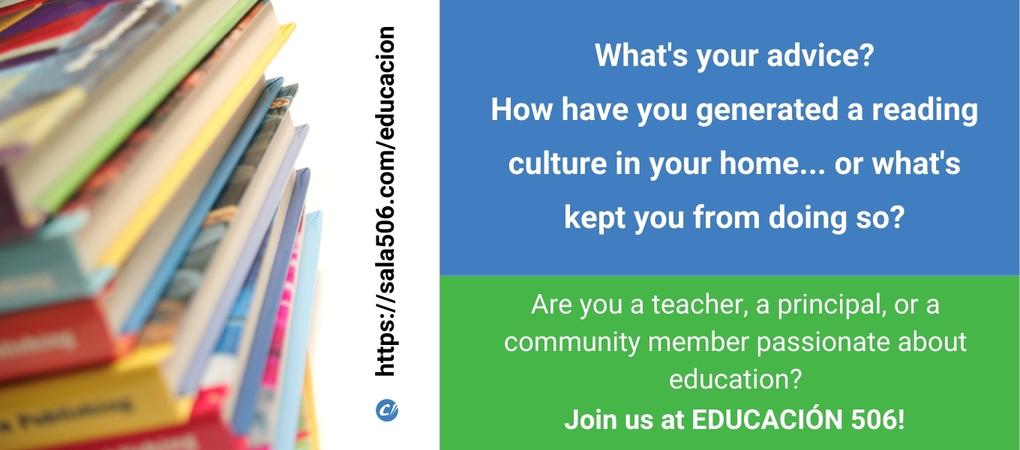


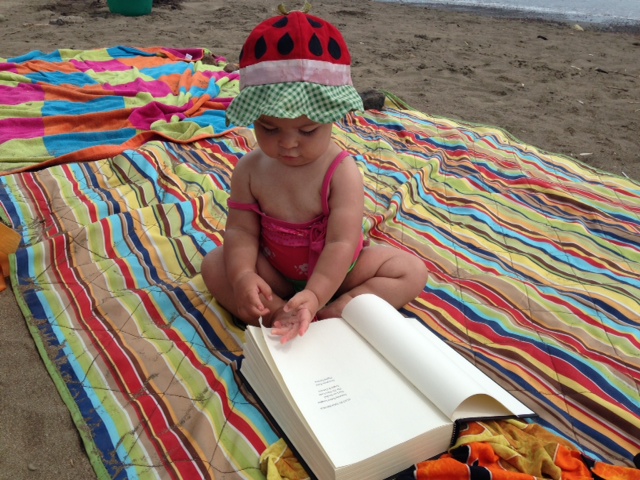


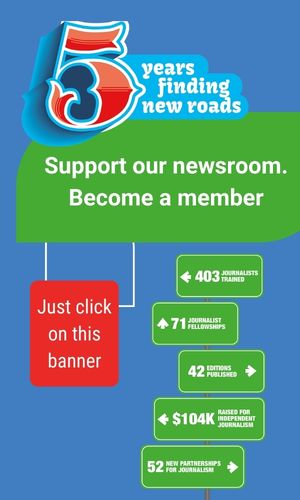

Love the analysis and the anecdotes, but with the ridiculously high prices of books in Costa Rica, it’s very hard to fall into the habit. Prices that range from the equivalent of US$ 30 to $50 are very common for novels and science/ nature books and the used book stores are few and hard to navigate.
Totally agree! We’re going to be talking to at least one initiative that’s trying to address this in low-income areas, and we’ll also be looking about how technology can play into making great stories more widely accessible.